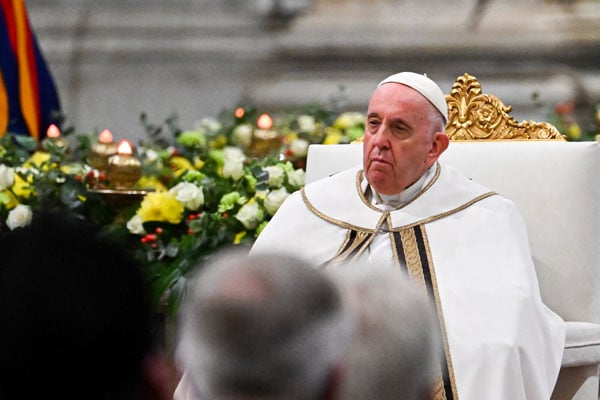Prime
Contextualising the Pope Francis-led trip

Author, Augustine Bahemuka. PHOTO/FILE/COURTESY
What you need to know:
- Throughout his papacy, Pope Francis has expressed heartfelt concern and closeness with victims of war, conflict and persecution; and deep desire to mediate peace. His choice of apostolic journeys is a vivid demonstration of his desire for a peaceful world.
Later this week, the long-awaited ecumenical peace pilgrimage to South Sudan is scheduled to take place, following a two-time postponement. In 2017, it was cancelled due to escalated violence and most recently was mid-last year due to the Pope’s ill health. It will be Pope Francis’ second visit to Eastern Africa, following his warm trip to Kenya and Uganda in 2015.
However, this particular trip presents a special mission: It is an ecumenical pilgrimage of peace to Democratic Republic of Congo and South Sudan, two countries whose past and recent history is haunted by war and conflict.
Throughout his papacy, Pope Francis has expressed heartfelt concern and closeness with victims of war, conflict and persecution; and deep desire to mediate peace. His choice of apostolic journeys is a vivid demonstration of his desire for a peaceful world. He visited Iraq, UAE and has expressed his intention to visit Syria. I am personally drawn towards South Sudan and in this piece, I outline a two-fold account to justify my bias.
First, ecumenical character of this apostolic journey. Pope Francis will be accompanied by two world religious principles; Archbishop of Canterbury, the Most Rev Justin Welby and the Moderator of the Presbyterian Church of Scotland, Rt Rev Iain Greenshields. Essentially, the principle of ecumenism calls for promotion of unity among the different Christian churches in the world.
The church in South Sudan has a character of plurality and its notorious war-torn history has a remarkable ecumenical spirit which has tireless inspired peace mediation among the different warring factions. John Ashworth, a seasoned expert on Sudan and South Sudan, lays it categorically: The church is the only institution in South Sudan that was left with credibility and moral authority because it stood with the local people through the darkest moments of civil war.
In 1991, southern Sudan experienced one of its ugliest episodes of history during the Bor Massacre. This resulted in bitterness and deep-seated mistrust between the Dinka and Nuer ethnic communities, following the failed coup orchestrated by Riek Machar against John Garang’s camp. The outcome was a highly polarised southerners split along ethnic lines.
Following years of unfruitful Church-led mediations between these two protagonists, the New Sudan Council of Churches (NSCC), an ecumenical organisation, decided to re-channel their peace efforts towards the bottom end of the pyramid: the grassroots. This would later grow to become the People-to-People Peace Process (PPPP), which attracted participants from all belligerent sides and involved them in cleansing rituals, traditional methods of reconciliation and peace, and visit exchanges.
The first peace conference was hosted at Wunlit in 1999. It was the credibility and trust that the local peoples had in church leaders that accounted for the success of this grassroots peace initiative. This forms a befitting historical context for the highly anticipated ecumenical pilgrimage of peace. The need to reinforce hope, peace and unity to the local people and empower them with courage and boldness to rebuild just and peaceful communities is the main message of the three religious leaders of this visit.
Second, Pope Francis’ deep concern for the situation in South Sudan. In 2019, the two main political arch-rivals were invited for an unprecedented retreat at Vatican where Pope Francis appealed to them to respect the armistice they had signed. To drive his message of peace home, the Pope shocked the two kingpins with a dramatic gesture: He knelt down and kissed their feet. What did this gesture mean? Then pastor of the Archdiocese of Buenos Aires, he kissed the feet of prisoners and women who were chosen for the biblical ritual of washing of the feet at Holy Thursday Mass. However, it was so shocking and mysterious for President Salva Kiir that he confessed his experience to the Parliament in Juba: “I was shocked and trembled when His Holiness the Pope kissed our feet. It was a blessing and can be a curse if we play games with the lives of our people,” President Kiir told parliament.”
This ecumenical pilgrimage marks another gesture of global solidarity, which is an attribute at the core of the Pope’s teachings.
Mr Bahemuka is a commentator on peace, religion and society.



